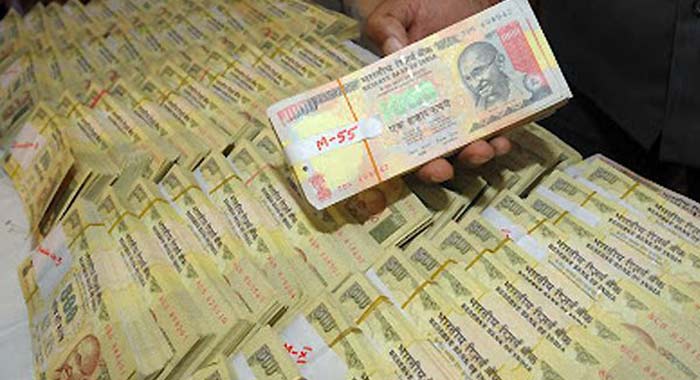To check black money menace, the government today announced 10-year imprisonment for hiding foreign assets, along with a host of other tough measures including dis-incentivising of cash dealings in real estate and other transactions.
Besides framing new legislations, the government will also take steps to incentivise use of credit and debit cards and putting a cap on cash transactions, while quoting PAN will be mandatory for all sale and purchase of over Rs 1 lakh, Finance Minister Arun Jaitley said in his Budget speech.
Presenting his first full-year budget, Jaitley said the first and foremost pillar of his tax proposals is to enacting a new law to effectively deal with the problem of black money which eats into the vitals of our economy and society.
“To this end, I propose to introduce a Bill in the current Session of Parliament,” he said.
Under the proposed law, concealment of income and assets and evasion of tax in relation to foreign assets will be prosecutable with rigorous imprisonment of up to 10 years. Further, the offence will be made non-compoundable and the offenders will not be permitted to approach the Settlement Commission.
As regards curbing domestic black money, a new and more comprehensive Benami Transactions (Prohibition) Bill will be introduced in the current session.
“This law will enable confiscation of benami property and provide for prosecution, thus blocking a major avenue for generation and holding of black money in the form of benami property, especially in real estate,” Jaitley said.
He also proposed to amend the Income-tax Act to prohibit “acceptance or payment” of an advance of Rs 20,000 or more in cash for purchase of immovable property.
“Quoting of PAN is being made mandatory for any purchase or sale exceeding the value of Rs 1 lakh. The third party reporting entities would be required to furnish information about foreign currency sales and cross border transactions,” he said
Jaitley further said that a provision is also being made to tackle splitting of reportable transactions. To improve enforcement, CBDT and CBEC will leverage technology and have access to information in each other’s database.
The Finance Minister said one way to curb the flow of black money is to discourage transactions in cash.
“Now that a majority of Indians have or can have, a RUPAY debit card, I, therefore, proposes to introduce soon several measures that will incentivise credit or debit card transactions, and disincentivise cash transactions,” he added.
Jaitley said problem of poverty and inequity cannot be eliminated unless generation of black money and its concealment is dealt with effectively and forcefully.
The proposed new law will entail penalty of 300 per cent for concealment of income and assets, while not giving offenders permission to approach the Settlement Commission.
Among others, non-filing of returns or filing with inadequate disclosure of foreign assets will be liable for prosecution with rigorous punishment of up to 7 years.
Income tax assessee will be required to mandatorily specify the date of opening of foreign account while filing return of income.
“The offence of concealment of income or evasion of tax in relation to a foreign asset will be made a predicate offence under the Prevention of Money-laundering Act, 2002 (PMLA),” he said.
Also enforcement agencies will be given power to attach and confiscate unaccounted assets held abroad and launch prosecution against persons indulging in laundering black money.
Jaitley said the Foreign Exchange Management Act, 1999 (FEMA) is also being amended.
PTI








